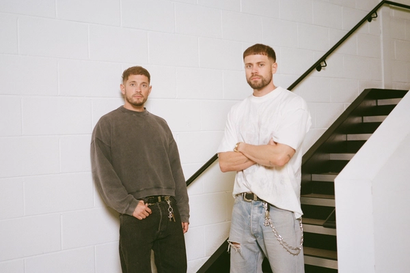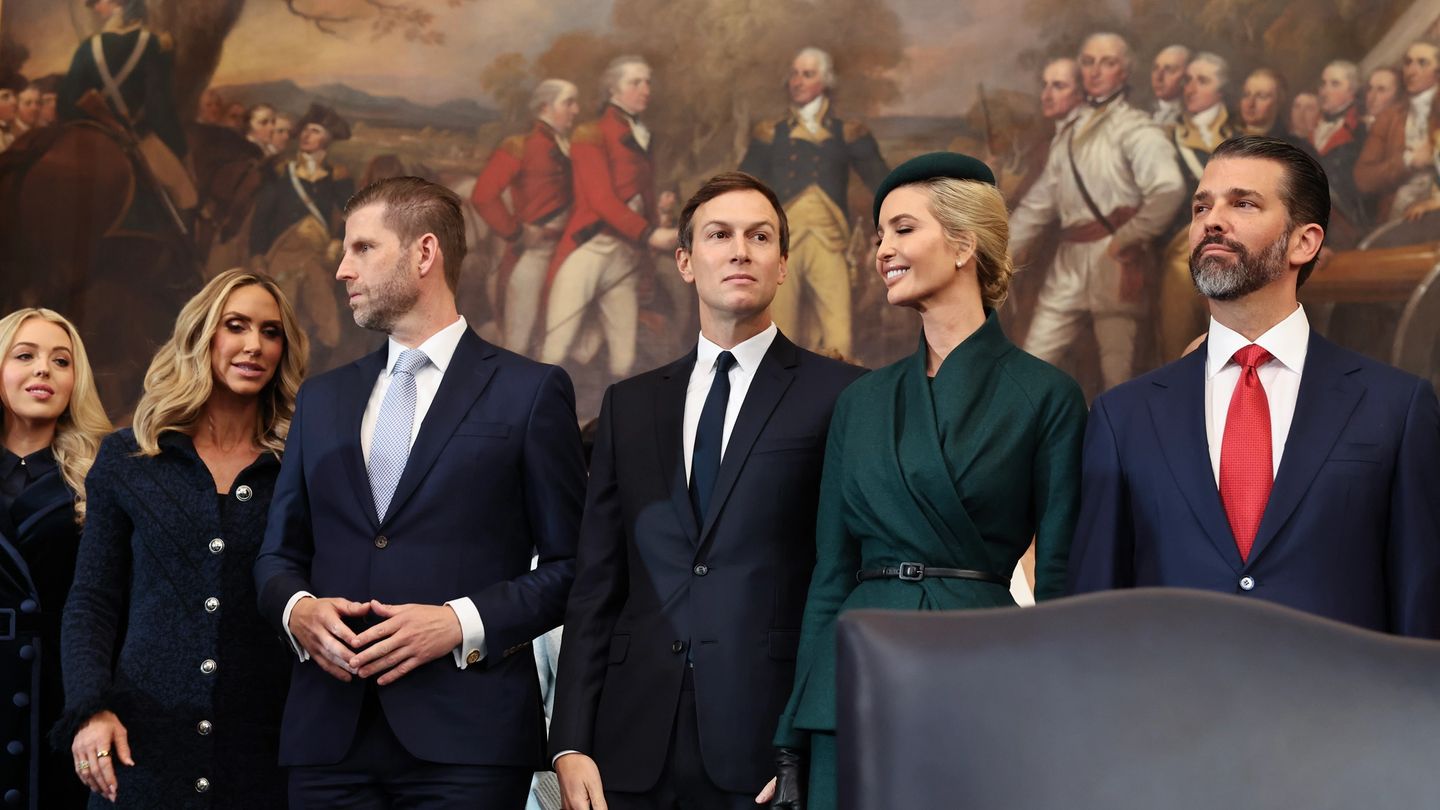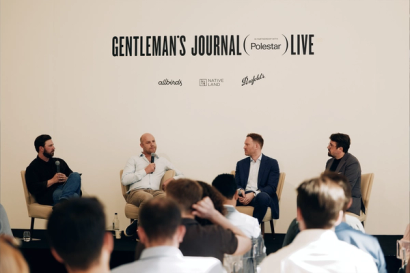

Jared Kushner: the quiet architect of U.S. influence in the Middle East
From Manhattan boardrooms to Middle Eastern peace tables, Jared Kushner has built a career defined by access, strategy, and influence - operating at the intersection of business, media, and diplomacy.
Words: Archie Rutland
Despite currently having no official job title within the US government, Jared Kushner appears to have played a major role in the renewed Israel Palestine peace talks. A former senior adviser to President Trump, Kushner has by-and-large refrained from the political spotlight during his father-in-law’s second term in office. A billionaire real estate scion turned political strategist, he has long moved in the folds of money, media and influence, but mostly from behind the scenes.
Public opinion about him is mixed. Among his critics he is emblematic of inherited privilege, blurs the lines between business and politics, and lacks transparency. Among his advocates he is a quiet deal maker and effective negotiator, with impressive strategic acumen for someone of his age.
Currently involved in one of the largest leveraged buyouts in history, while simultaneously positioning himself as a figure striving to deliver peace and prosperity to one of the world’s most divided regions, Kushner remains as intriguing as he is enigmatic. We’ve scratched beneath the surface to find out what really drives him and his ambitions in the Middle East. But whether his intentions are bold and admirable, or shallow and questionable, we’ll let you decide.
Here are seven things you might not know about Jared Kushner.
1. A family scandal and the rise to power
Kushner's father Charles, CEO of Kushner Properties, was convicted of tax evasion and witness tampering in 2005, throwing the family property empire into chaos. At just 24, Kushner stepped up to run the business, taking on high-risk projects such as 666 Fifth Avenue, under his father's orders, a record-breaking but controversial acquisition that nearly bankrupted the company during the financial crisis.
New York 2007, Charles, Jared and Barbara Kushner attend the relaunch of the New York Observer website
2. Robert De Niro and The New York Observer
At just 25, he bought the New York Observer for around $10m. His bid to acquire the journal came around a time that Robert De Niro, Jane Rosenthal and Craig Hatkoff, the founders of the Tribeca Festival, collectively known as Trifecta, were pursuing a deal with owner Arthur Carter. Citing Kushner's inexperience, long standing editor Peter Kaplan warned staff, "He doesn't know what he doesn't know" and quit the business. Despite that, Kushner successfully moved the edit from fading print demand to digital, increasing the unique monthly footfall from around one million to six.
New York 2006, Kushner attends the premiere of "Factotum" as owner of the New York Observer
3. Trump's 2016 election campaign
Kushner oversaw digital strategy, data analytics, and online fundraising for Trump's 2016 electoral campaign. Working with a small team, he targeted social media advertising and voter profiling at a time when Trump's campaign resources were relatively lean. Enlisting the services of Cambridge Analytica, the now defunct data analysis firm later criticised for its use of Facebook data, investigations found that Kushner did not personally mishandle information. The relationship placed his digital operation at the centre of debates about data ethics and political targeting. His work, however, is often credited with modernising the campaign’s digital reach and helping Trump connect directly with specific voter groups — a quiet but considerable contribution to the campaign’s unexpected success.
2016 Indianapolis, Kushner and Stephen Bannon (formerly Cambridge Analytica) arrive on president elect Trump's plane at Carrier Corporation
4. The Abraham Accords
As a senior adviser in Trump's White House, Kushner was instrumental in shaping a series of agreements between Israel, the United Arab Emirates, Bahrain and Morocco, known as the Abraham Accords. Travelling frequently to the region, often joined by fellow New York property developer Steve Witkoff, who was part of the U.S. delegation, their discussions focused on trade, investment and shared economic interests as much as diplomacy. The accords were praised by some for opening a dialogue with the Middle East and criticised by others for neglecting the conflict in Gaza. Whatever the view, Kushner and Witkoff had achieved more as businessmen than many career politicians.
Jerusalem 2021, Kushner meets with Israeli Prime Minister Benjamin Netanyahu
5. Backing from the Gulf
Following Trump’s first term, in 2021, Kushner founded Affinity Partners, a private equity firm based in Miami. Shortly after, Kushner secured a $2 billion investment from Saudi Arabia’s Sovereign Wealth Fund, a deal signed off by Crown Prince Mohammed Bin Salman himself. Since then, Affinity has made investments in wellness, tech and finance, in Europe and the Middle East. Affinity is currently involved in a high-profile $55 billion bid to take video game developer Electronic Arts (EA), maker of FIFA and Battlefield, private in the largest ever cash buyout, under a consortium with Silver Lake and PIF. Kushner's interests now reach far beyond politics, buildings and publishing in the U.S., he's now brokering one of the largest international business deals of his generation.
Washington 2017, President Trump hosts (Deputy) Crown Prince Mohammed bin Salman at the Oval office, to discuss U.S. Saudi relations but also introducing Kushner as the main point of contact for the White House in the Middle East
6. Negotiating peace in the Middle East
Though no longer in government, Kushner has returned to the region as part of an informal U.S. envoy alongside Witkoff. The pair have been meeting with Israeli Prime Minister Benjamin Netanyahu and regional leaders to support the latest ceasefire agreement between Israel and Hamas in Gaza. The plan focuses on disarming Hamas, scaling back Israeli troop presence and creating a transition of governance to allow aid and reconstruction to begin. His role, while unofficial, demonstrates how comfortably he continues to operate in the overlap between diplomacy and business, a space that has become his trademark.
Tel Aviv 2025, Steve Witkoff, flanked by Jared Kushner and Ivanka Trump, speaks to crowds at Hostages Square following a ceasefire agreement between Israel and Hamas
7. Rebuilding a warzone
Looking ahead, Kushner’s focus appears to be on construction and investment in the Middle East, particularly in Gaza. Earlier this year, he suggested the region’s waterfront could one day resemble a Riviera, describing it as potentially very valuable real estate.
“Gaza’s waterfront property, it could be very valuable, if people would focus on building up livelihoods.”
His comments drew both interest and criticism for seeing opportunity, but through the lens of ownership. He has since returned to the area, meeting with Israeli and regional leaders, in a bid to uphold the tentative ceasefire agreement that has seen continued conflict since it began. Kushner's continued involvement hints at a larger ambition, however, to move from peace-broker to rebuilder, transforming war zones into investment opportunities. Whether that vision will ever become a reality remains to be seen.
Interested in power and influence, read our aticles on Larry Ellison and Rupert Murdoch.


